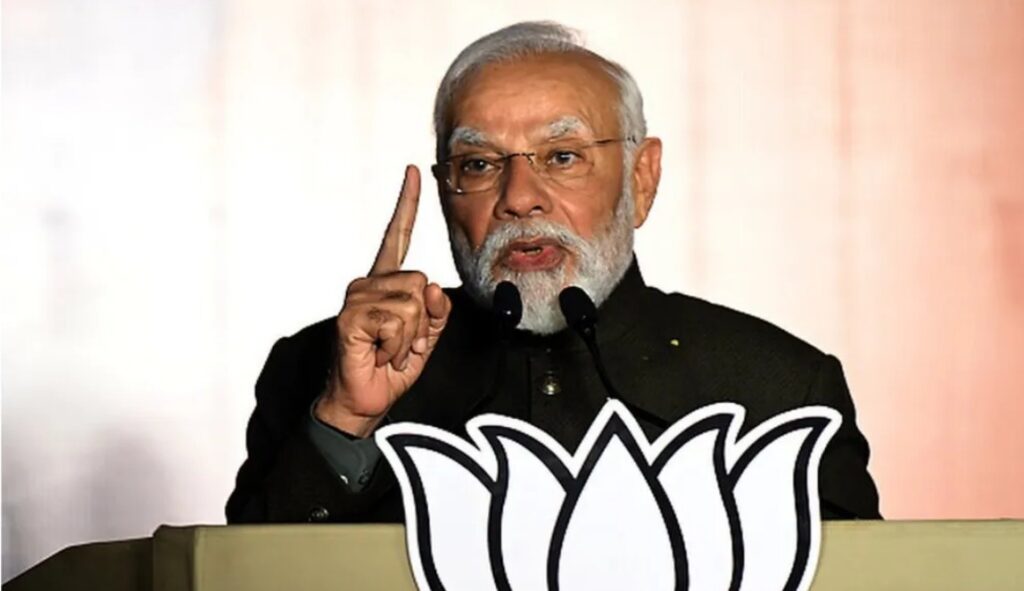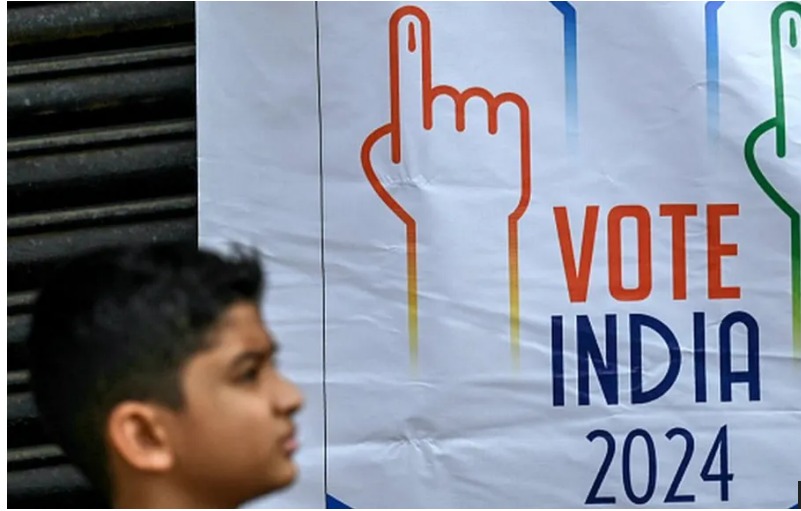
In a significant announcement, the Election Commission has revealed that India’s general election will be conducted in seven phases spanning across April and May. Chief Election Commissioner Rajiv Kumar confirmed during a press briefing that the results will be declared on 4 June, marking the culmination of this monumental electoral process.
With a staggering 968 million eligible voters, India is poised to witness the largest democratic exercise in history. All eyes are on Prime Minister Narendra Modi’s Bharatiya Janata Party (BJP) and its allies as they aim for a historic third term in power. Opinion polls are indicating a favorable outcome for the BJP, setting the stage for an intense electoral battle.
However, the opposition is not backing down. A coalition bloc named the Indian National Developmental Inclusive Alliance (INDIA), comprising more than two dozen opposition parties including the Congress, has emerged to challenge the BJP’s dominance. As the nation braces itself for this high-stakes election, the stage is set for a riveting political showdown that will shape India’s future trajectory. Stay tuned for more updates on this unfolding story.
Opposition Challenge to Modi Appears to be Waning
In a significant development, India’s political landscape is witnessing signs of a potential shift as the opposition’s challenge to Prime Minister Modi’s dominance appears to be losing momentum. With 543 elected seats in the lower house, any party or coalition requires a minimum of 272 MPs to form a government.
In the 2019 election, Prime Minister Modi’s Bharatiya Janata Party (BJP) secured a landslide victory, clinching a remarkable 303 seats out of 543. Now, as the country gears up for another electoral showdown, the BJP has set its sights even higher, aiming to secure at least 370 seats.
However, the road ahead for the opposition seems fraught with challenges. Amidst reports of internal discord and waning support, the cohesion of opposition parties is being called into question. In several states, polls will be conducted in multiple phases, adding to the complexity of the electoral landscape.
As the political landscape continues to evolve, all eyes are on the upcoming election, which promises to be a decisive moment in India’s democratic journey. Stay tuned for the latest updates on this developing story.

The upcoming voting process will be conducted in a phased manner, commencing on April 19 and concluding on June 1, as confirmed by Mr. Kumar. With an aim to ensure inclusivity and accessibility, Mr. Kumar emphasized, “We will take democracy to every corner of the country,” reaffirming the Election Commission’s commitment to upholding democratic principles.
Highlighting the scale and significance of the electoral exercise, Mr. Kumar underscored, “It is our promise to deliver a national election in a manner that we… remain a beacon for democracy around the world.”
A staggering 968 million individuals, 150 million more than the last elections in 2019, are eligible to cast their votes in this election cycle. Notably, the Election Commission announced that over 26 million new voters have been included in the electoral roll, with approximately 14 million being women, surpassing the newly enrolled men by over 15%. This surge in voter registration reflects a growing participation of women in the democratic process.
Update on India’s Electoral Process: New Election Commissioners Appointed
In recent developments, India has appointed two new election commissioners to fill vacant spots in the three-person Election Commission. This move comes after the sudden resignation of Arun Goel, the second-highest officer in the Election Commission, which left the poll body with only one of the three mandated members, the chief election commissioner.
As preparations for the upcoming elections continue, it has been confirmed that electronic voting machines (EVMs) will be utilized, featuring a None of the Above (Nota) button to accommodate voter preferences.
Meanwhile, in the judicial realm, India’s Supreme Court is actively engaged in hearing a case regarding the controversial electoral bonds scheme. This scheme allowed people and companies to make political donations anonymously, sparking widespread debate and scrutiny.
In a related development, the Election Commission has released a list of India’s leading political donors. The Bharatiya Janata Party (BJP), led by Prime Minister Narendra Modi, emerged as the biggest beneficiary, securing nearly half of the bonds worth 120 billion rupees donated between 2018 and 2024.
These updates underscore the dynamic nature of India’s electoral landscape and the various factors shaping the upcoming elections. Stay tuned for further developments as the electoral process unfolds.

